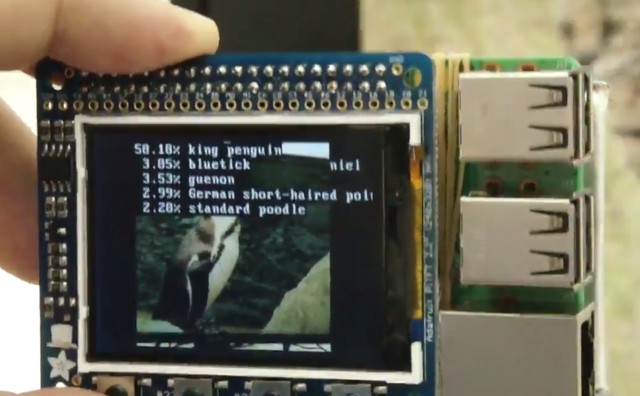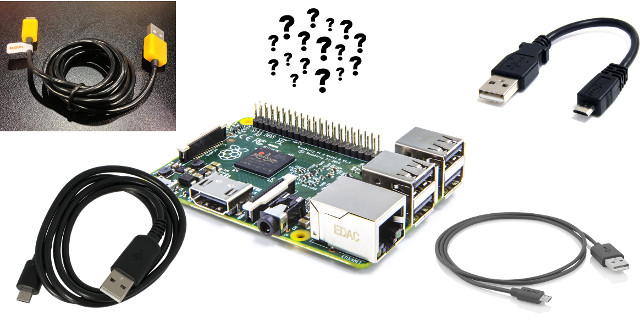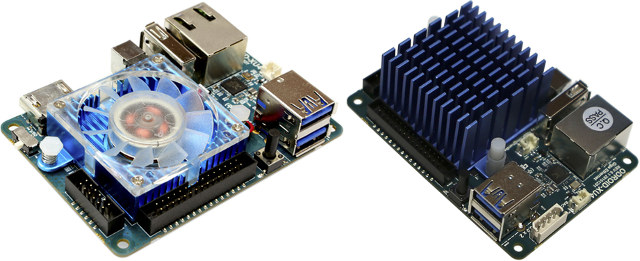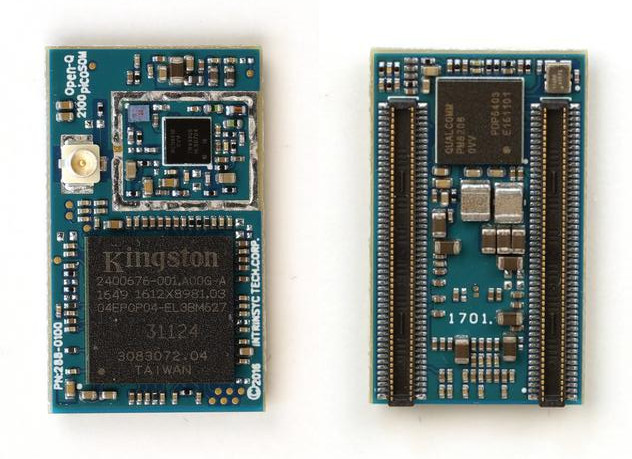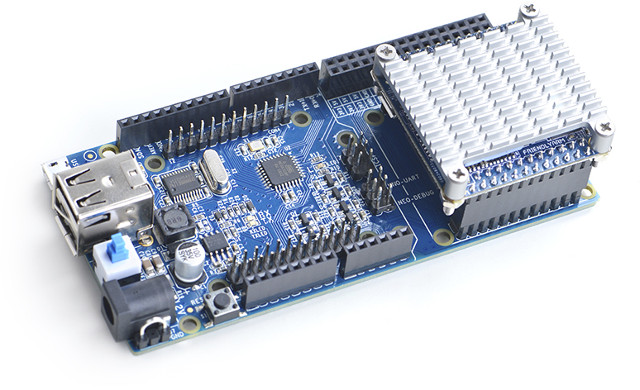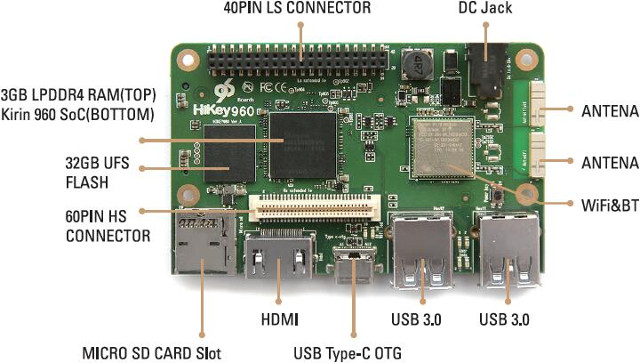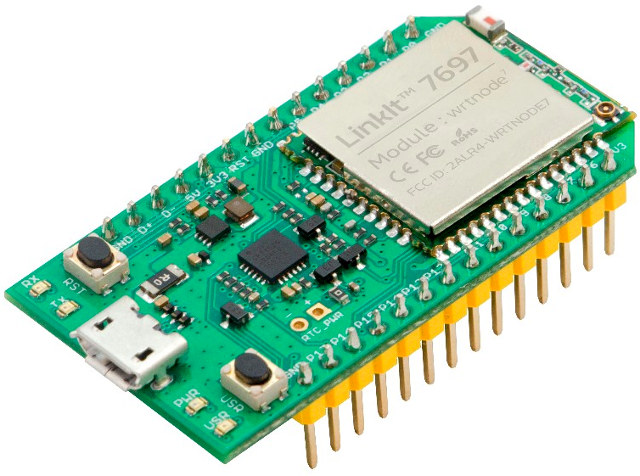You’ve probably already seen one or more object recognition demos, where a system equipped with a camera detects the type of object using deep learning algorithms either locally or in the cloud. It’s for example used in autonomous cars to detect pedestrian, pets, other cars and so on. Kochi Nakamura and his team have developed software based on GoogleNet deep neural network with a a 1000-class image classification model running on Raspberry Pi Zero and Raspberry Pi 3 and leveraging the VideoCore IV GPU found in Broadcom BCM283x processor in order to detect objects faster than with the CPU, more exactly about 3 times faster than using the four Cortex A53 cores in RPi 3. They just connected a battery, a display, and the official Raspberry Pi camera to the Raspberry Pi boards to be able to recognize various objects and animals. The first demo is with Raspberry Pi Zero. […]
Selecting a Micro USB Cable to Power Development Boards or Charge Phones
Yesterday one person contacted me on Facebook asking me whether there was any chance of me doing a “which usd-micro usb cable is best”, as there’s not much clear information on the Internet. His purpose was to charge his phone, but many development boards come with a micro USB port, and I’ve read many comments about powering the board. It also happened to me, and the main cause can either be the power supply which does not work as rated (usually 5V/2A), or the micro USB cable which may have a resistance a little to high leading to voltage drops. You’ll know you may have a power problem when the board refuses to boot, and usually boot loop, or randomly reboots especially under high load. The first solution is to get a power supply that provide the right voltage and amperage, and you can test that with USB Charger doctor […]
Hardkernel ODROID-XU4Q is a Fanless Version of ODROID-XU4 Exynos 5422 Development Board
[Update May 2018: You may be interested in ODROID-XU4Q review with Ubuntu 18.04] We had already seen ODROID-XU4 development board price drop to $59 earlier this year, but a frequent complain about the board remained: it requires a fan to operate at full speed, and makes noise while the fan turns. To address this issue, the company has now launched ODROID-XU4Q board with exactly the same specifications with Samsung Exynos 5422 octa-core processor, 2GB RAM, eMMC module support, Gigabit Ethernet, USB 3.0, HDMI 1.4 etc…, except the fan is replaced by a large heatsink. The company has also thoroughly tested both versions in different configurations such as setting the maximum frequency to 1.8 or 2.0 GHz, and found ODROID-XU4Q to be slightly slower under high load due to CPU throttling, as the large heatsink does not cool quite as well as the smaller heatsink in combination with a fan. However […]
Intrinsyc Introduces Open-Q 2100 SoM and Devkit Powered by Qualcomm Snapdragon Wear 2100 SoC for Wearables
Qualcomm unveiled Snapdragon Wear 2100 SoC for wearables early last year, and since then a few smartwatches powered by the processor – such as LG Watch Style and Watch Sport – have been launched, and Intrinsyc has now unveiled one of the first module based on the processor with Open-Q 2100 system-on-module, and a corresponding Nano-ITX baseboard. Open-Q 2100 SoM specifications: SoC – Qualcomm Snapdragon Wear 2100 (APQ8009W) quad core ARM Cortex A7 processor @ up to 1.094 GHz with Adreno 304 GPU System Memory – 512 MB LPDDR3 Storage – 4GB eMMC flash Connectivity – 802.11 b/g/n WiFi (WCN2320), Bluetooth 4.1 LE, Gen 8C GNSS (GPS/GLONASS) with on-board u.FL connector (WGR7640) Audio – Integrated Codec/PMIC (PM8916-1) with optional support for Fluence HD, Snapdragon Voice Activation, and Snapdragon Voice+ 2x 100-pin board-to-board connectors with USB 2.0, I2S, GPIO, MIPI DSI up to 720p @ 60 Hz, 2-lane MIPI CSI, SDC2/microSD […]
NanoPi NEO Boards Get a New Arduino UNO Compatible Dock to Play with Arduino Shields
FriendlyELEC has launched a new accessory board for their NanoPi NEO / NEO 2 / NEO Air boards with UNO Dock V2.0 board compatible with Arduino UNO board thanks to its Microchip ATMeaga328P MCU and compatible headers, and also equipped with headers to plug a NanoPi NEO board. Key features for UNO Dock v2.0 for NanoPi NEO: MCU – Microchip ATmega328 8-bit AVR MCU @ 16 MHz with 2KB SRAM, 32KB flash, 1024 bytes EEPROM USB – 2x USB 2.0 ports connected to NEO board Expansion Arduino UNO headers for shields Female headers to insert the NanoPi NEO board Male headers to access NanoPi NEO boards’ IOs Debugging & Programming – 1x micro USB port (USB to UART), ICSP header, NEO debug UART header Misc – Power on/off, reset button, UART select jumper Power Supply – 12V DC via 2.1mm power barrel The system would be great if NanoPi […]
96Boards Compliant HiKey 960 ARM Cortex A73 Development Board is Now Available for $239
The most powerful 96boards development board – HiKey 960 – has finally been launched, and can be purchased for $239 on Aliexpress, Amazon US, Switch Sense (Japan), Seeed Studio, or All Net (Germany). HiKey 960 specifications have not changed much since we found out about the board: SoC – Kirin 960 octa-core big.LITTLE processor with 4x ARM Cortex A73 cores @ up to 2.4 GHz, 4x Cortex A53 cores @ up to 1.8 GHz, and a Mali-G71 MP8 GPU System Memory – 3GB LPDDR4 SDRAM (PoP) Storage – 32GB UFS 2.1 flash storage + micro SD card slot Video Output / Display Interface – 1 x HDMI 1.2a up to 1080p, 1x 4-lane MIPI DSI connector Connectivity – Dual band 802.11 b/g/n/ac WiFi and Bluetooth 4.1 with on-board antennas USB – 2x USB 3.0 type A host ports, 1x USB 2.0 type C OTG port Camera – 1x 4-lane MIPI […]
$14 LinkIt 7697 Bluetooth 4.2 LE and WiFi IoT Board is Powered by Mediatek MT7697 ARM Cortex-M4 MCU
Mediatek Labs has launched a new IoT development, which on the surface looks similar to LinkIt Smart 7688 board, but the internal design is quite different as the MIPS processor and Linux OS, have been replaced by Mediatek MT7697 ARM Cortex-M4 processor running FreeRTOS, and beside WiFi, also includes support for Bluetooth 4.2 LE. LinkIt 7697 board specifications: Wireless SoC – Mediatek MT7697 ARM Cortex M4F MCU @ 192 MHz with 352KB RAM, 4MB flash, 802.11 b/g/n WiFi, Bluetooth 4.2 LE and a PMU Expansion – 2x 14-pin header with 18x GPIO, 2x UART, 1x I2C, 1x SPI, 18x PWM, 4x EINT, 4x ADC (0 to 2.5V), 1x IrDA, 1x I2S Debugging – 1x SWD, CP2102 UART to USB chipset Misc – Reset and user buttons; power and user LEDs Power Supply – 5V via micro USB port Dimensions – 48 x 26 mm The board can be programmed with […]
Wio GPS is a $40 Grove & Arduino Compatible Bluetooth 3.0 + GSM/GPRS + GPS Tracker Board
After Wio Link and Wio Node boards, Seeed Studio has added a new board to their Wio (Wireless Input Output) family with Wio GPS board based on Microchip SAMD21 Cortex M0+ MCU for Arduino compatibility, and Mediatek MT2503 ARM7 processor for GPS, Bluetooth 3.0, and 2G (GPRS) connectivity. Wio GPS board specifications: MCU – Microchip ATSAMD21G18A-MU ARM Cortex M0+ MCU @ 48 MHz with 256KB flash, 32KB SRAM Wireless SoC – Mediatek MT2503 ARM7EJ-S processor @ 260 MHz Storage – micro SD slot (shared with nano SIM slot) Connectivity (built-in MT2503 in Quectel MC20 module) Bluetooth 2.1 + EDR, 3.0 with SPP Profile and HFP-AG Profile; u.FL connector for external antenna Quad band 2G GSM/GPRS with u.FL connector for external antenna and nano SIM card slot GNSS – GPS + BeiDou + QZSS with u.FL connector for external antenna Audio – Speaker footprint (+/-), 3.5mm AUX jack with mic and stereo audio […]


